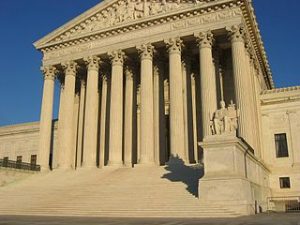
On June 26, 2017, the U.S. Supreme Court reinstated a limited version of President Trump’s initial travel ban which was released in January of this year.
Unlike President Trump’s travel ban on six Muslim-majority countries, the revised ban will only suspend the admission of foreign nationals and refugees who do not possess “a credible claim of a bona fide relationship with a person or entity in the United States” from Iran, Libya, Somalia, Sudan, Syria, and Yemen. Under the new provisions, travel restrictions are set to last for 120 days while bans on refugees are set to last for a period of 90 days.
In setting out what constitutes a “bona fide relationship”, the Supreme Court has cited several examples of those candidates who are likely to be permitted entry into the United States under the new provisions of the travel ban. These include:
- Foreign nationals travelling to live with or visit family members in the United States;
- Students who have been admitted to a post-secondary institution within the United States;
- Foreign nationals who have accepted offers of employment with United States companies;
- Business travellers who possess a “formal, documented relationship” with an American entity that has been formed “in the ordinary course of business”;
- Those holding valid immigrant or non-immigrant visas prior to June 26, 2017; and,
- Lecturers invited to address American audiences.
Tourists and those entering “bona fide relationships” with individuals or entities after June 26, for the purpose of evading the executive order, are not entitled to enter the United States under the revised travel ban.
Many have argued that the new provisions entitle customs and immigration officers to considerable leeway in determining what constitutes a “bona fide relationship”. According to Supreme Court Justices Samuel Alito, Clarence Thomas, and Neil Gorsuch, the “bona fide” standard would “invite a flood of litigation” from foreign nationals and refugees who believe they are entitled to US visas.
Fortunately, once the revised ban takes into effect on June 29, 2017, the Supreme Court will have four months to introduce new provisions to the revised travel ban until a full hearing concerning the legality of President Trump’s order begins in October 2017.